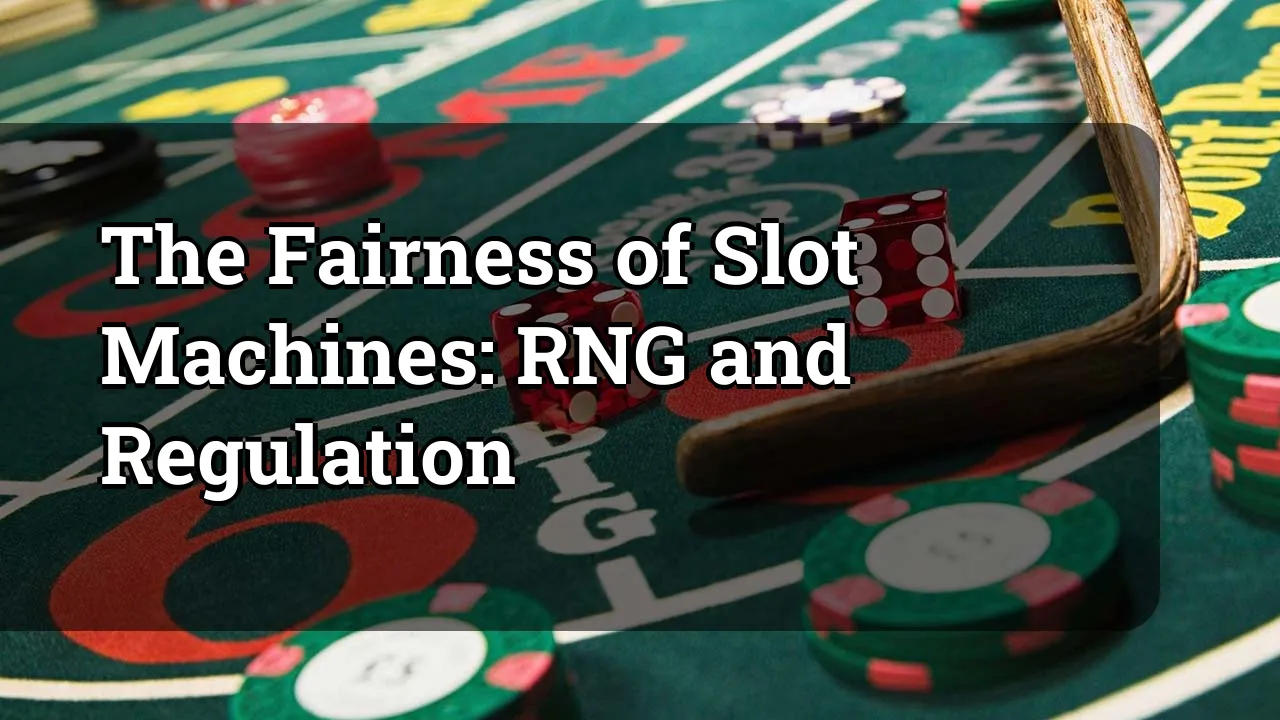The Fairness of Slot Machines: RNG and Regulation

When it comes to casino slot machines, one of the most common questions that arise is whether they are being monitored to choose who's going to win or lose. This concern is rooted in the belief that the outcomes of slot machines may be manipulated by the casino to favor certain players. However, in reality, the fairness of slot machines is ensured through the use of Random Number Generators (RNG) and strict regulations imposed by gaming authorities.
Random Number Generators (RNG)
RNG is a computer program that generates a sequence of random numbers. In the context of slot machines, RNGs are used to determine the outcome of each spin. These algorithms are designed to produce unpredictable and unbiased results, ensuring that the outcome of each spin is independent of previous or future spins. This means that the slot machine does not have a memory of previous outcomes and cannot be influenced by the casino to favor certain players.
The use of RNGs in slot machines makes it virtually impossible for anyone to predict or manipulate the outcome of a spin. The algorithms used are rigorously tested and audited by third-party agencies to ensure their fairness. This ensures that every player has an equal chance of winning or losing on a slot machine.
Regulation and Oversight
In addition to RNGs, the fairness of slot machines is further safeguarded by strict regulations and oversight from gaming authorities. These regulatory bodies, such as the Nevada Gaming Control Board or the United Kingdom Gambling Commission, set stringent standards for the operation of slot machines to ensure fairness and integrity in the gambling industry.
Slot machines in regulated casinos are subject to regular inspections, audits, and testing to ensure that they comply with these regulations. Gaming authorities employ independent testing laboratories to evaluate the performance of slot machines and verify the accuracy of their RNGs. These tests are conducted to confirm that the machines are operating within acceptable parameters and are not biased towards the casino or any individual player.
Moreover, casinos are required to display the payout percentages of their slot machines, which indicate the average return to players over a specific period. This transparency allows players to make informed decisions and encourages fair play within the casino industry.
Conclusion
Contrary to popular belief, casino slot machines are not being monitored to choose who's going to win or lose. The fairness of these machines is ensured through the use of RNGs and strict regulations imposed by gaming authorities. RNGs generate random and unbiased outcomes, making it impossible for the casino to manipulate the results. Furthermore, regulatory bodies closely monitor and inspect slot machines to ensure their compliance with industry standards. So, the next time you play a slot machine, you can be confident that the outcome is purely a matter of chance.











